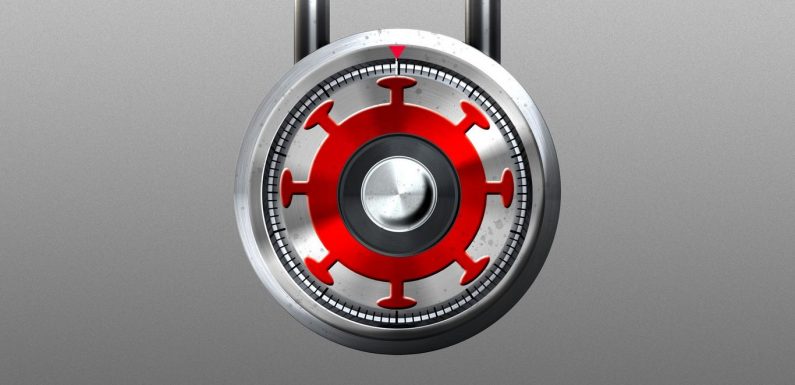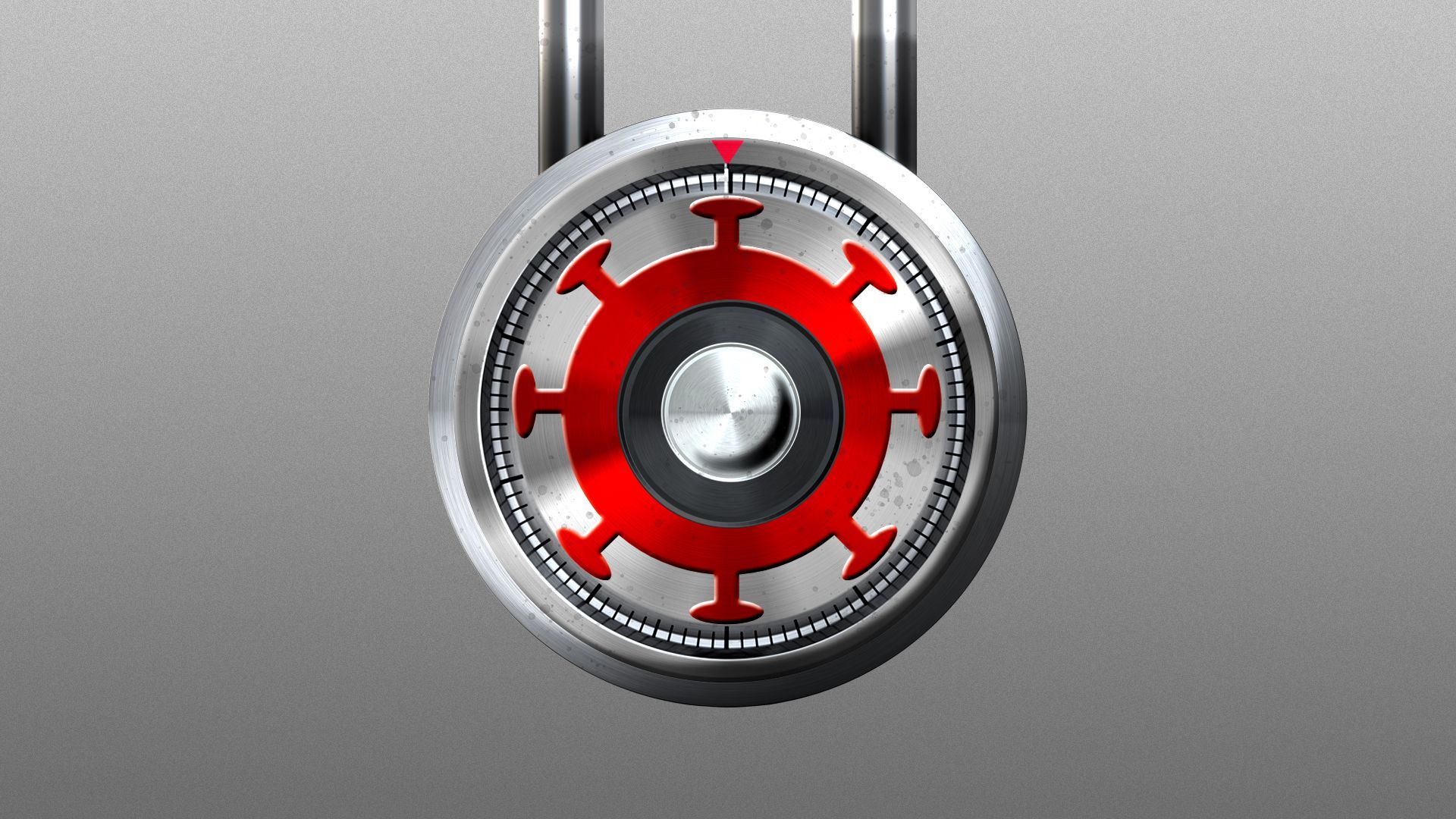
Illustration: Sarah Grillo/Axios
The controversy over the origin of the COVID-19 virus is renewing focus on how the risks and benefits of pathogen-altering experiments are weighed and managed.
Why it matters: Better governance of biorisks would limit the threat of a human-made pandemic — and could help identify the origin of future outbreaks more quickly and with a lot less controversy.
What's happening: There's no conclusive evidence to support the idea that SARS-CoV-2 emerged from a lab accident, but the possibility is spurring debate about the risks of some biological research and guardrails for gain-of-function research.
- In some of that research — but not all — scientists enhance viruses to make them more transmissible or more lethal, arguing it can provide insights about the pandemic potential of a pathogen.
- But the scope of gain-of-function research isn't sharply defined and can encompass a wide range of experiments.
Where it stands: The current framework for oversight in the U.S. is limited to federally funded research and doesn't cover the increasingly larger role the private sector plays, says Anita Cicero, deputy director of the Center for Health Security at Johns Hopkins University — nor does that oversight extend overseas.
- "There are big gaps between what some countries are doing, and there is some international guidance, but it is very much up to individual countries and labs to have their own policies," says Gregory Koblentz, director of the Biodefense Graduate Program at George Mason University, who recently published a report about maximum biosafety labs around the world.
What they're saying: Some experts have called for an outright ban of pathogen-enhancing research, but others argue it can continue to be done in safe and more transparent ways.
- On the one hand, there are concerns that new rules or regulations based on a vague definition of gain-of-function research could hamper the scientific process and the development of countermeasures against emerging viruses, says Koblentz. Such studies have yet to be definitively linked to any outbreak.
But some researchers question the stated benefits of some gain-of-function experiments.
- Studies that turn animal viruses that aren't transmissible or pathogenic in humans into novel ones that have those properties have "almost no value in terms of predicting pandemics and have extreme risks because their entire scientific validity rests on creating something that's inherently dangerous," Harvard epidemiologist Marc Lipsitch said earlier this week at a Brookings Institution event.
- There's a need to make sure "scientists are taking appropriate safeguards against those risks, that research has some defined benefit worth the risk, and that there is a degree of transparency and oversight so we know there is a system weighing those benefits and risks," says Koblentz.
How it works: Right now, the risk-benefit assessment for individual studies in the U.S. largely falls to internal review boards of experts at universities, laboratories and federal agencies that evaluate proposed research and enforce federal guidelines.
- Cicero says those boards need "more tools to evaluate the actual benefits and whether there are alternative methods of learning the same thing but with lower risk."
And there are calls for more transparency in the review process, which isn't public in the name of protecting scientific methods and intellectual property.
- "If you want to work in a field where you are creating risks at the population level, you should be willing to do it in a way that is open enough so that people can evaluate those risks," Lipsitch said at the event.
- But other experts say revealing some aspects of the process could be counterproductive.
The big picture: Pathogen-enhancing research is just one part of the overall risk picture of some biological science.
- One hypothesis about the potential origin of SARS-CoV-2 is that the virus had been collected from animals in the wild and was being studied without being enhanced before researchers became infected with it.
- Some experts propose improving tracking of laboratory-acquired infections and physically isolating the location of labs conducting experiments that carry higher risks. (Wuhan in China, for example, has a population greater than 11 million, larger than any city in the U.S.)
- "If it came from nature, you have to decide whether you're going to continue to collect these viruses and bring them back to laboratories," says Steven Quay, a biotech entrepreneur who has studied the possibility of a COVID lab leak. "If it came from gain-of-function, you need to control that."
What to watch… what role the World Health Organization and other entities may take in developing international guidelines around governing pathogen-enhancing research, which could potentially mirror the emerging frameworks for human genome editing.
- Another approach is that labs could accept third-party inspections by experts who evaluate their practices for mitigating biorisks and provide recommendations for strengthening them, says Koblentz.
The bottom line: Whatever the ultimate cause of the COVID-19 pandemic was — and we may never know — it's reasonable to take steps to better govern research that could go wrong.
Source: Read Full Article
